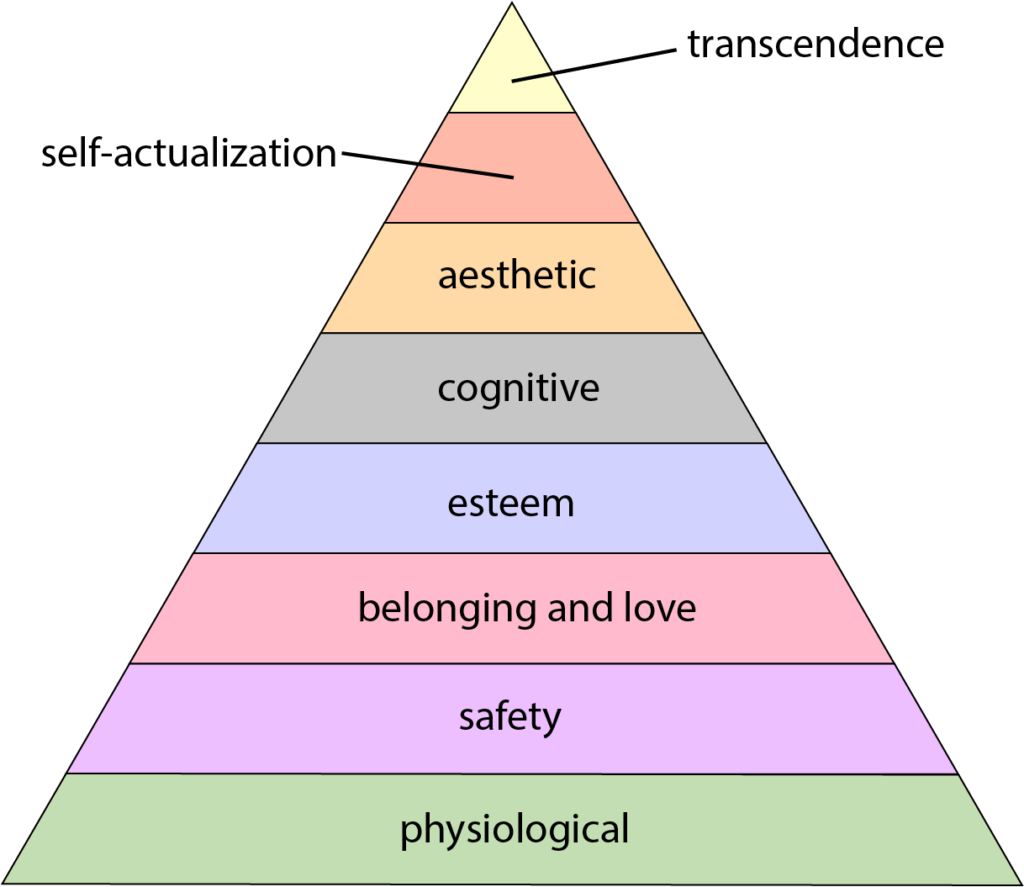
In the realm of psychological theories that have left a significant mark on both academic and popular understanding of human motivation, Abraham Maslow’s Hierarchy of Needs stands out. Proposed in his 1943 paper “A Theory of Human Motivation,” Maslow’s framework suggests that human needs are arranged in a hierarchy, often depicted as a pyramid. From the bottom up, this hierarchy includes physiological needs, safety needs, love and belonging needs, esteem needs, and self-actualization at the peak. While each level of this pyramid is crucial for understanding human motivation and behavior, the foundational layer—physiological needs—is particularly vital as it underpins all other needs. In this blog post, we’ll focus on this foundational layer, exploring its components, significance, and implications in both personal and societal contexts.
The Foundation of Human Needs: Physiological Necessities
At the base of Maslow’s pyramid lie the physiological needs, the most essential and primal of all human requirements. These include:
- Air: The most critical requirement for survival. Without air, humans cannot survive more than a few minutes.
- Water: Essential for maintaining bodily functions, including digestion, absorption, circulation, and temperature regulation.
- Food: Provides the energy and nutrients necessary for maintaining health and supporting growth and repair.
- Shelter: Offers protection from environmental elements and a safe space for living and sleeping.
- Sleep: Crucial for physical and mental health, including healing and repair of the heart and blood vessels, and supporting brain function.
- Clothing: Necessary for protection against the elements, maintaining body temperature, and social norms.
These needs are considered foundational because they must be met before an individual can focus on higher-level needs. Without adequate satisfaction of these basic needs, a person’s ability to pursue safety, love, esteem, and self-actualization is profoundly compromised.
The Significance of Meeting Physiological Needs
Personal Well-being
The fulfillment of physiological needs is directly linked to an individual’s health, vitality, and overall well-being. When these needs are adequately met, a person can achieve a state of physical homeostasis, where the body’s internal environment is maintained at a stable, optimal condition. This stability allows individuals to direct their energy and resources towards higher-level pursuits, such as forming relationships, achieving personal goals, and self-exploration.
Societal Implications
On a societal level, the collective ability to meet these foundational needs has profound implications for social stability, economic productivity, and collective well-being. Societies that ensure access to clean water, nutritious food, adequate housing, and healthcare are better positioned to foster the growth of secure, productive, and cohesive communities. Conversely, when these basic needs are not met, societies are likely to face challenges such as increased health problems, social unrest, and hindered economic development.
Strategies for Meeting Physiological Needs
Addressing physiological needs requires both individual and collective action. On a personal level, making informed choices about nutrition, hydration, sleep, and healthcare is crucial. On a societal level, policies and programs that ensure access to clean water, nutritious food, adequate housing, healthcare, and clean air are essential. These might include investments in infrastructure, social welfare programs, public health initiatives, and environmental protection and sustainability efforts.
Conclusion
The foundational layer of Maslow’s Hierarchy of Needs underscores the essential role that physiological needs play in human motivation and behavior. Meeting these needs is not only critical for individual health and well-being but is also a prerequisite for societal stability and development. By recognizing and addressing these basic needs, individuals and societies can create a solid foundation upon which to build a fulfilling and prosperous life for all. As we continue to navigate the complexities of the modern world, the insights provided by Maslow’s foundational layer remain as relevant as ever, reminding us of the universal necessities that unite us in our shared human experience.
Citation Note: This post was wholly and completely generated by artificial intelligence (AI) – ChatGPT. Any errors or omissions are the result of that product and are not the result of action by realfarmerjay.com or its affiliates.
Why we use AI generated content: We 100% believe in “Maximum Value, Minimum Effort.” Information on general topics is widely available and, for the most part, is rarely completely original. The value we provide is bringing attention to these topics through our various social media outlets, not to publish original content on these subjects.
